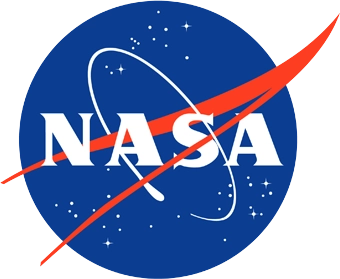Science News
Showing 1 to 24 of 1476.
Imelda and Humberto Crowd the Atlantic
2025.09.30
The tropical cyclones are close enough in proximity that they may influence one another.
NASA Data Powers New Tool to Protect Water Supply After Fires
2025.09.24
When wildfires scorch a landscape, the flames are just the beginning. NASA is helping communities across the nation foresee and prepare for what can follow: mudslides, flash flooding, and contaminated surface water supplies.
Ragasa Steers Toward China
2025.09.24
The super typhoon headed for Guangdong province after lashing northern Luzon in the Philippines.
Cooper Creek Replenishes Lake Eyre
2025.09.18
Another major tributary reached the Australian outback lake in 2025, extending the months-long flood of the vast, ephemeral inland sea.
Smoky Skies in the Pacific Northwest
2025.09.16
Smoke filled river valleys in northeastern Washington and parts of British Columbia.
A Giant Iceberg’s Final Drift
2025.09.11
After a long, turbulent journey, Antarctic Iceberg A-23A is signaling its demise as it floats in the South Atlantic.
NASA Data, Trainings Help Uruguay Navigate Drought
2025.09.10
NASA satellite data and trainings helped Uruguay create a drought-response tool that its National Water Authority now uses to monitor reservoirs and guide emergency decisions. A similar approach could be applied in the United States and other countries around the world.
Monsoon Rains Flood Pakistan
2025.09.10
Heavy rains and flooding across the country since June 2025 have displaced millions of people, devastated infrastructure, and submerged farmland.
Dust in the “Eye” of the Tarim Basin
2025.09.10
Satellites have observed episodes of dust swirling across the basin in western China for decades.
Hurricane Kiko Nears Hawaii
2025.09.09
The storm became a major hurricane while traversing the eastern Pacific but weakened as it approached the islands.
B.C. Wildfires Send Smoke Skyward
2025.09.04
Lightning likely ignited several large fires that sent smoke pouring over the Canadian province in early September 2025.
Hail Scars Alberta Farmland
2025.08.28
A powerful supercell storm left a trail of damage spanning hundreds of kilometers southeast of Calgary, Canada.
Typhoon Kajiki Lashes Southeast Asia
2025.08.26
Late summer in the Northwest Pacific Ocean often sees an increase in storminess, which in August 2025 included a typhoon that lashed both China and Vietnam.
A Sea Aswirl With Chlorophyll
2025.08.25
One of NASA’s newest Earth-observing sensors extends and improves the continuous measurement of light-harvesting pigments in ocean surface waters.
Hurricane Erin Roils in the Atlantic
2025.08.21
The major hurricane steered clear of land but delivered tropical storm conditions to coastal areas along its path.
Smoke Blankets the Iberian Peninsula
2025.08.20
Fueled by extreme heat and dry conditions, intense wildfires in Spain and Portugal sent thick smoke across parts of Europe.
Sprawling Gifford Fire Scorches California
2025.08.11
The fast-growing blaze charred more than 100,000 acres in the span of a week.
Bloom Time in the Barents Sea
2025.08.09
Arctic waters near Norway’s Bear Island teemed with tiny plant-like organisms that painted the seas turquoise-blue and green.
Wildfire Sweeps Through Southern France
2025.08.08
The Aude fire rapidly burned around 16,000 hectares in August 2025, becoming the country’s largest fire since 1949.
Dust Engulfs Coastal Peru
2025.08.05
Skies turned orange across the city of Ica as winds, locally known as Paracas winds, lofted dust from the coastal desert region.
NASA's Black Marble: Stories from the Night Sky
2025.08.01
This video explores how nighttime satellite imagery serves as a powerful scientific tool for understanding Earth. The content highlights several key applications of nighttime satellite data:
Cloud Streets Over the Laptev Sea
2025.07.18
The striking cloud formation developed over Arctic waters north of Siberia in July 2025 as frigid air met warmer open water.
Wildfire Smoke Billows Over Northern California
2025.07.17
Amid scorching heat and low humidity, the Green and Butler fires have burned tens of thousands of acres and choked nearby communities with smoke.
Fires Rage in Arizona
2025.07.15
Two lightning-ignited fires near the Grand Canyon became large and destructive in July 2025.
Showing 1 to 24 of 1476.
